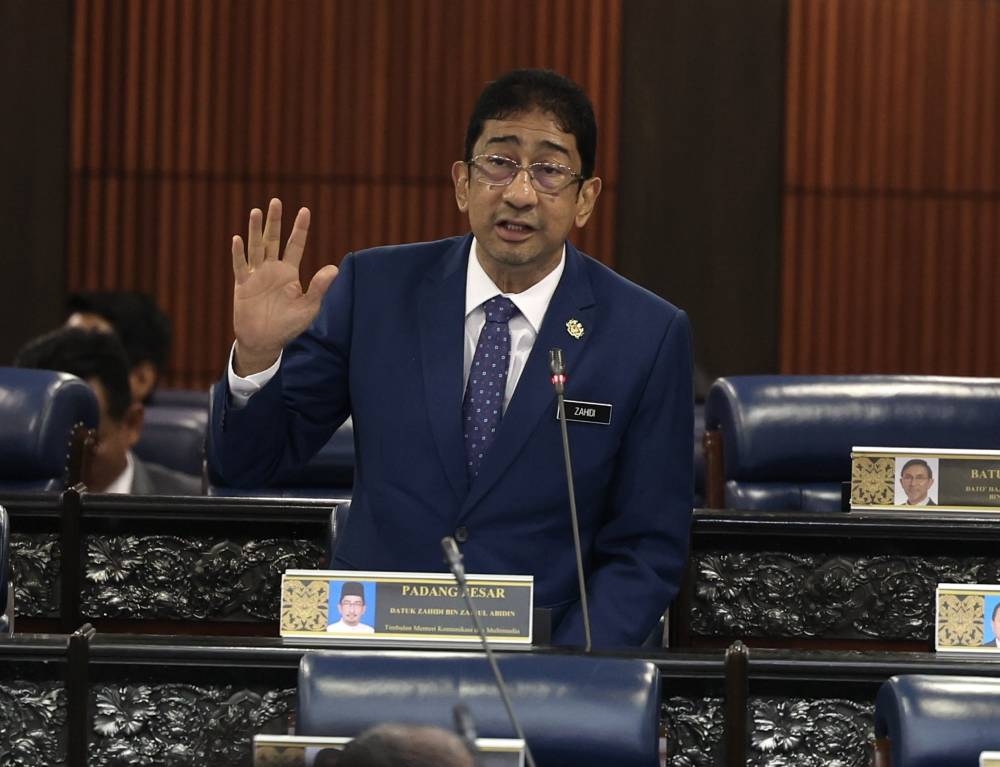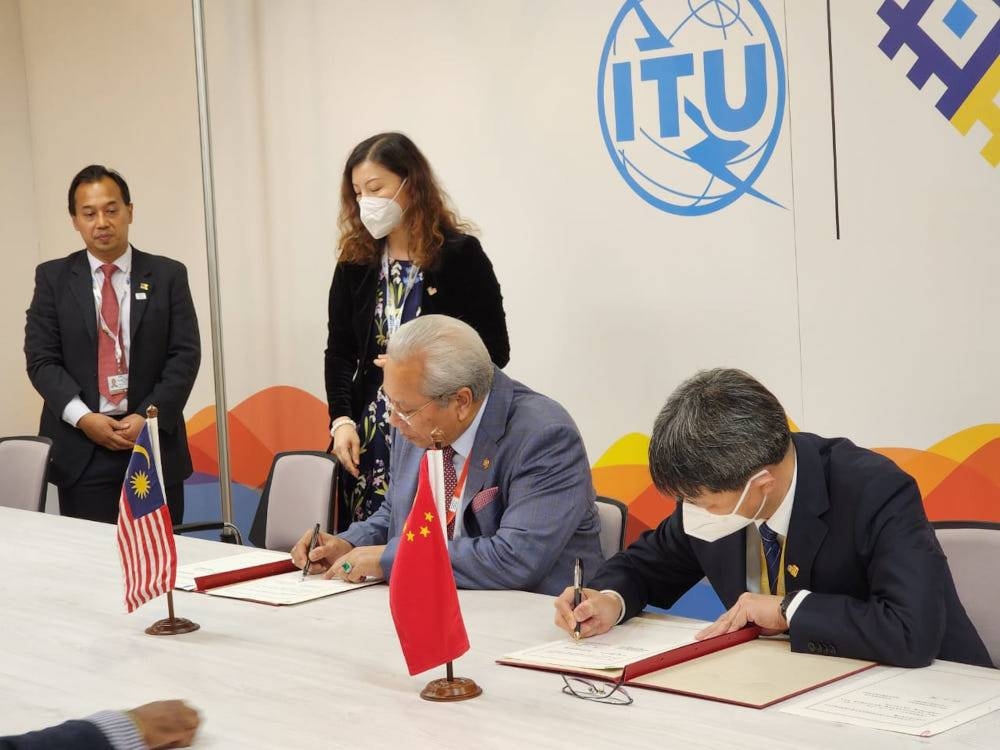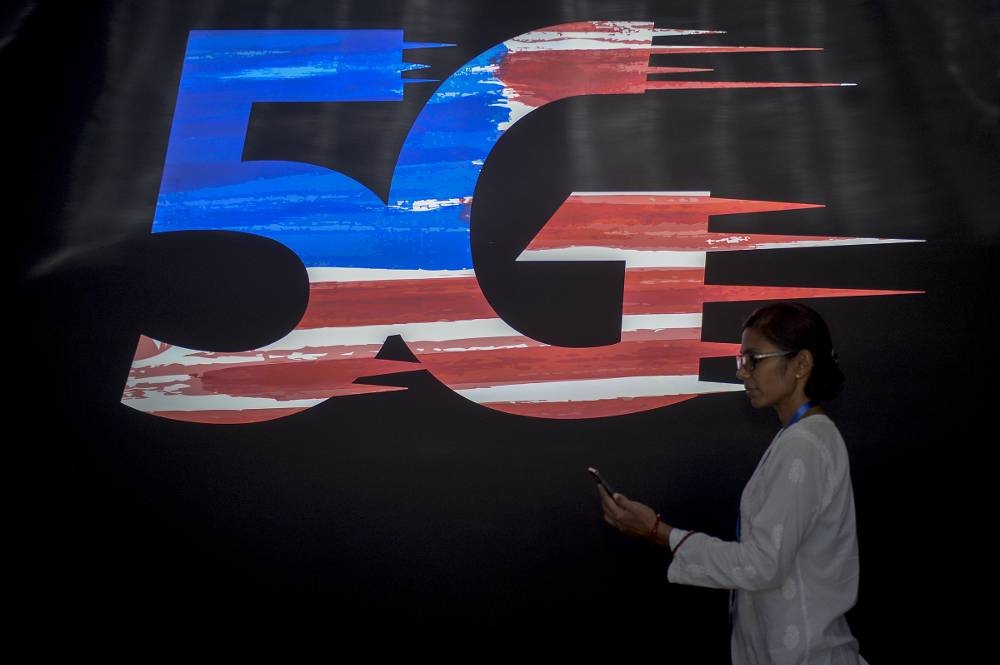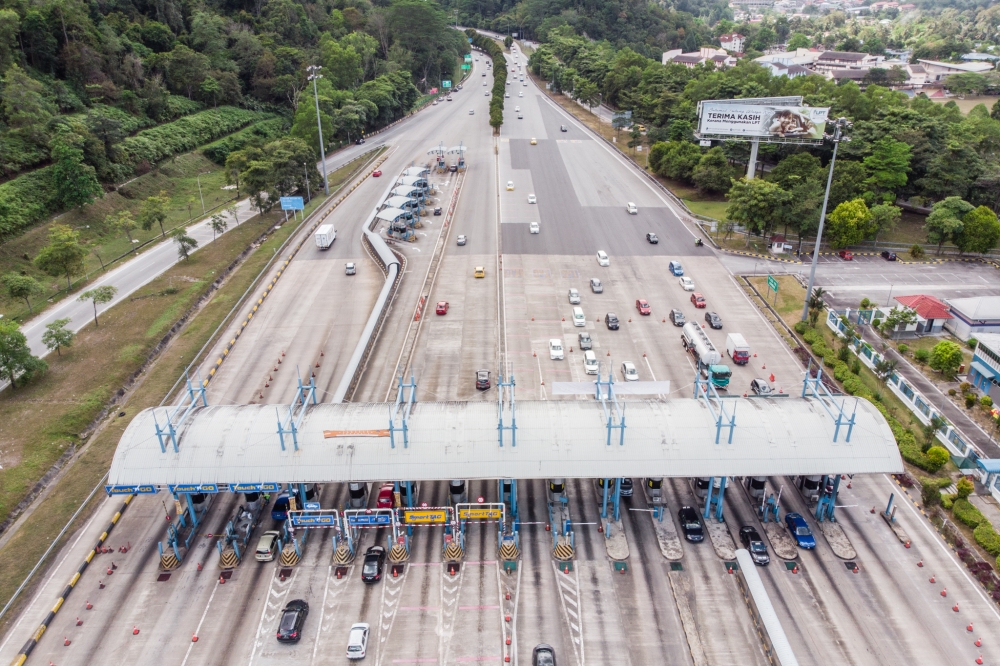KUALA LUMPUR, Oct 3 — The reason many areas that supposedly should have 5G internet connection still haven't is because the telecommunication companies are not playing ball with the government, Deputy Minister of Communications and Multimedia Datuk Zahidi Zainul Abidin said today.
Zahidi was answering questions from Kepong and Muar MPs Lim Lip Eng and Syed Saddiq Syed Abdul Rahman on why their areas and many parts of Kuala Lumpur still had poor internet connectivity despite the deputy minister stating last week that eight areas, including major towns, are under 5G coverage.
Zahidi revealed that the eight areas with high-speed 5G coverage are Kuala Lumpur, Putrajaya, Selangor, Negri Sembilan, Melaka, Johor, Penang and Sabah.
However, Lim said his phone showed he only had 4G connection despite it being a 5G phone, while Syed Saddiq told Zahidi that when he drives 30 minutes outside of Muar, the internet connectivity drops tremendously.
"First and foremost, please inform the Malaysian Communications and Multimedia Commission (MCMC) if your area has poor internet access. We at the MCMC give the money to build these transmission stations using government and taxpayers money but the telcos are in charge of fastening the transmitters.
"Problem is these telcos haven't been playing ball with us. They disagree with us when we ask them to place some of these transmitters on stations around Kuala Lumpur. Not only that, even after DNB (Digital Nasional Berhad) instructed these telcos to do so they refused.
"We at MCMC can only ask them or implore them to place these transmitters to increase the strength of the transmitters while DNB don't have the authority to force them or reprimand them for not doing so.
"That's why I kept saying in this house to give this 5G rollout project back to the MCMC so we can then instruct these telcos to follow our instructions as we have an Act to compel them to do so," Zahidi said.
He encouraged the public to report their poor internet connection.
He also touched on the red tape with state authorities and bureaucracy that would need to be overcome when it comes to building the transmission towers.
He said boosting internet signals to rural areas will cost a lot of money.
"We have the technology to boost internet signals, for example making it from one to four bars. However this costs money. We can take money from the SB (statutory bodies) fund or state government money as they have their own multimedia agencies.
"In addition, I also hope the MPs can ask for the government to give us a larger allocation so we can pay for this service," he added.
The contention over 5G rollout in the country began when the government decided to create DNB, a special purpose vehicle to roll out the network in the country under a single wholesale network model.
Telcos, however, preferred a natural migration of their own networks from 4G to 5G.
After much objection from the telcos who proposed a dual wholesale network to counter the single wholesale network, the government decided to offer a 70 per cent stake in DNB to the players while keeping 30 per cent and holding a golden share.
Malay Mail reported that all six Malaysian mobile telcos have agreed to take up equity stakes in DNB, with an access agreement the final step in ending years of delays that set Malaysia behind regional peers in offering the technology.
Finance Minister Datuk Seri Tengku Zafrul Abdul Aziz said that finalising terms that outline issues such as network quality, dispute resolution and most crucially cost, was targeted for the end of the month.
The deal to take up a stake in DNB also requires shareholders to be 5G access seekers — they must also buy 5G capacity from DNB — with Tengku Zafrul also saying that foreign players were "knocking on our doors" to participate.






















